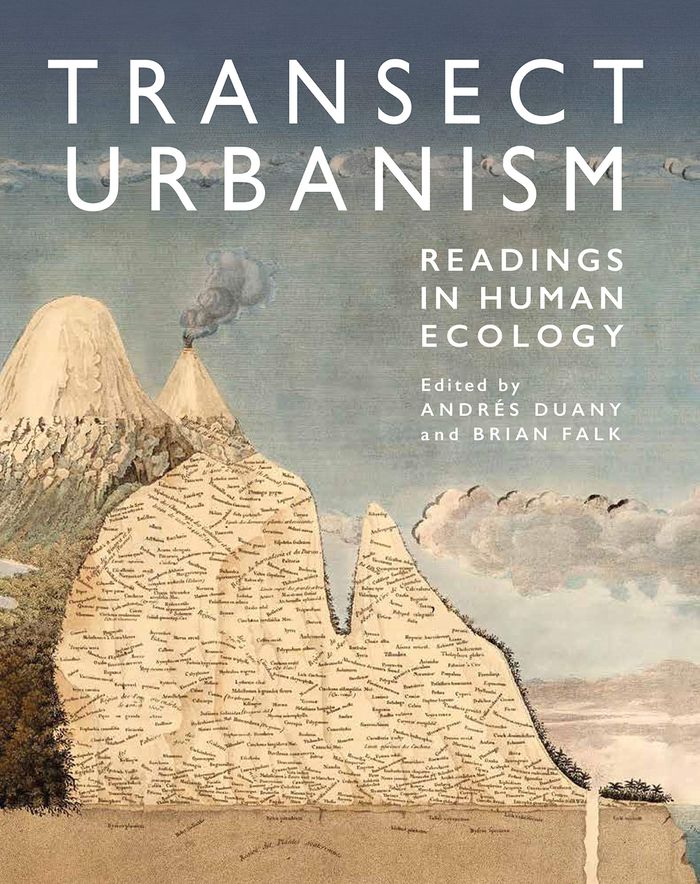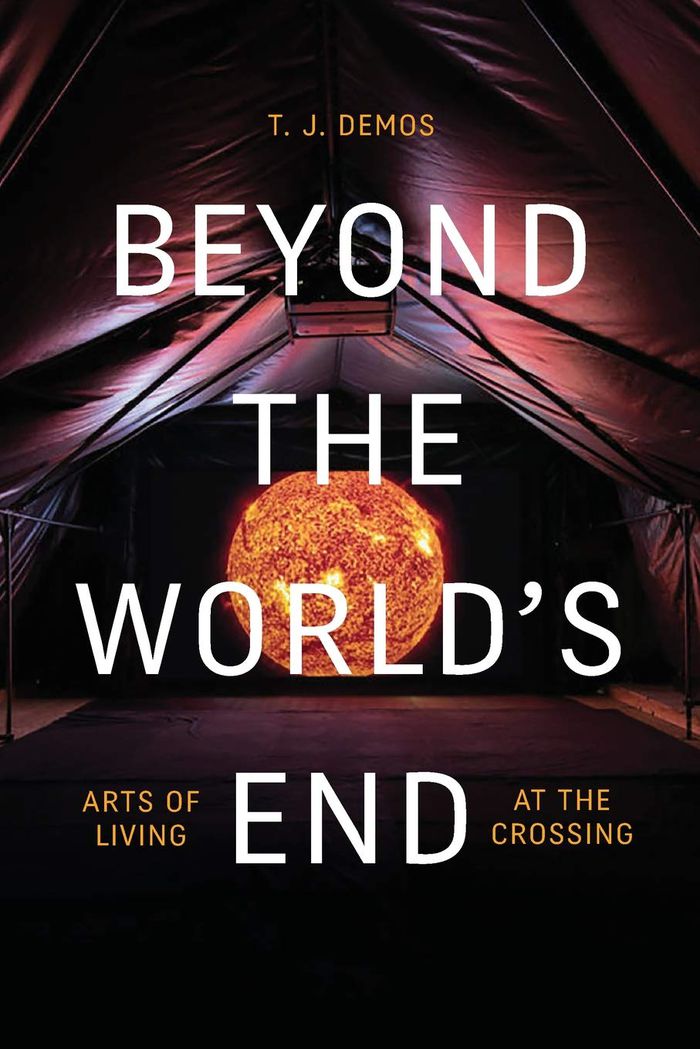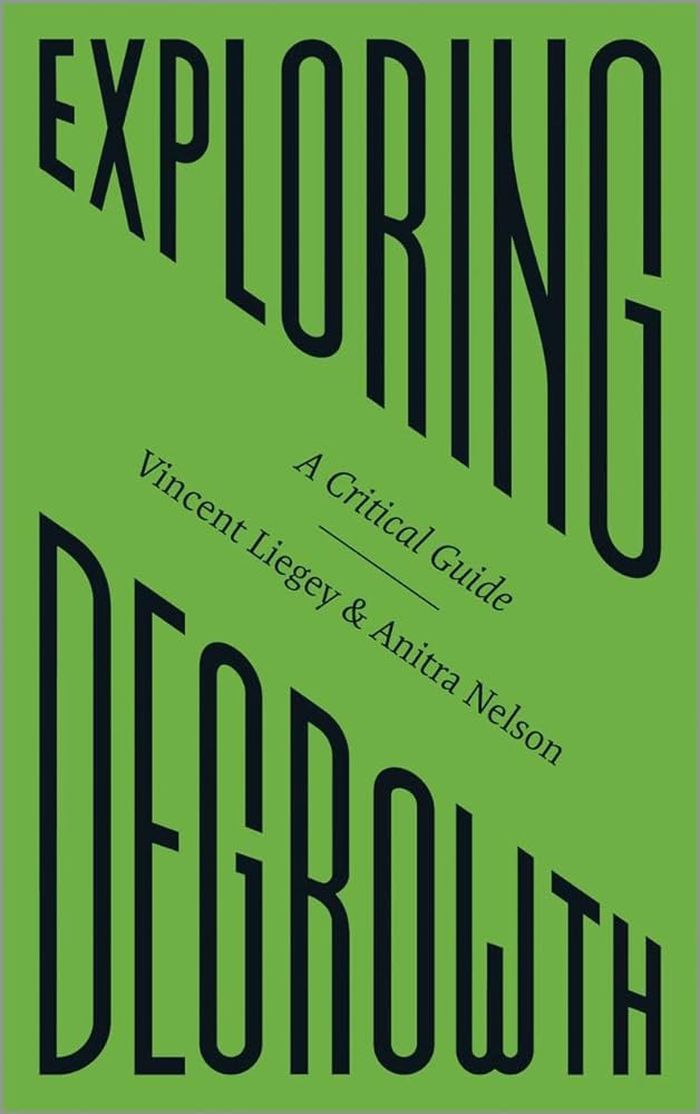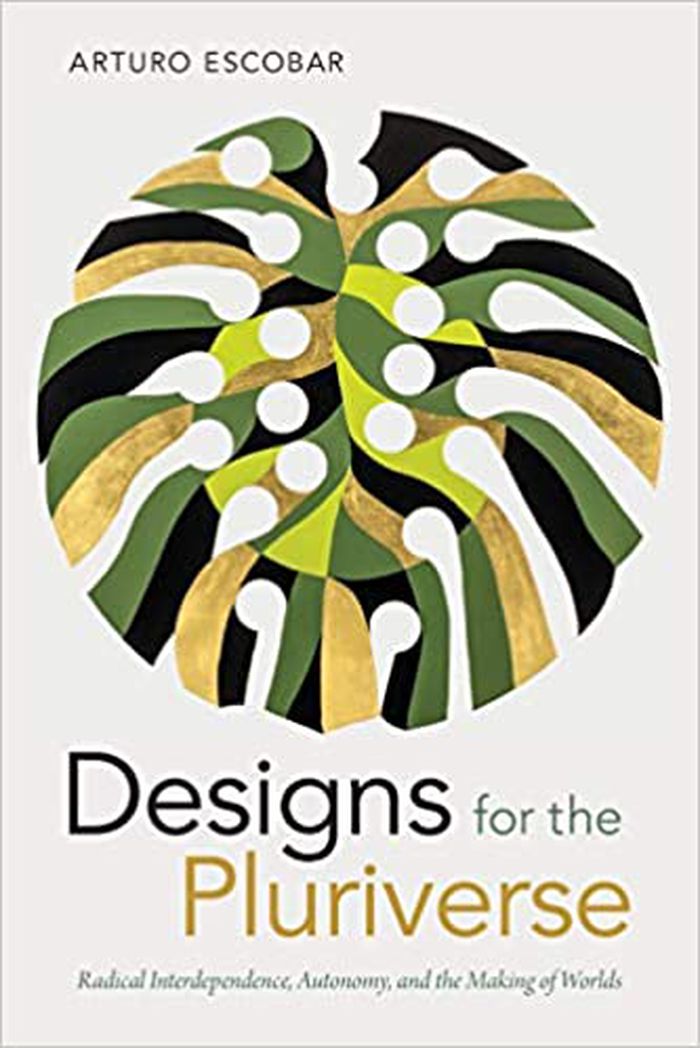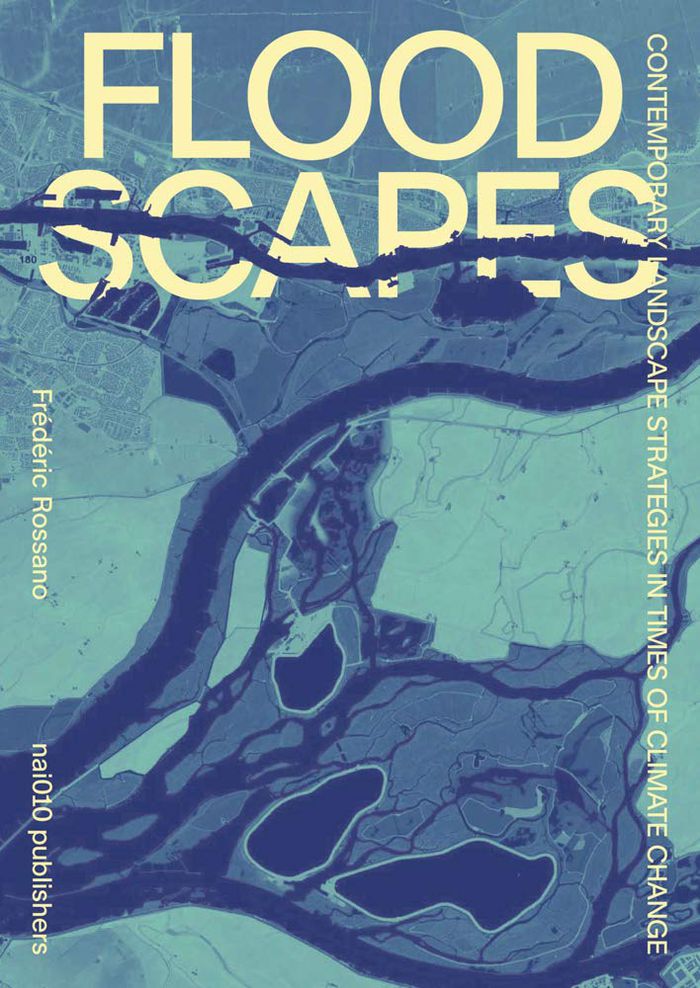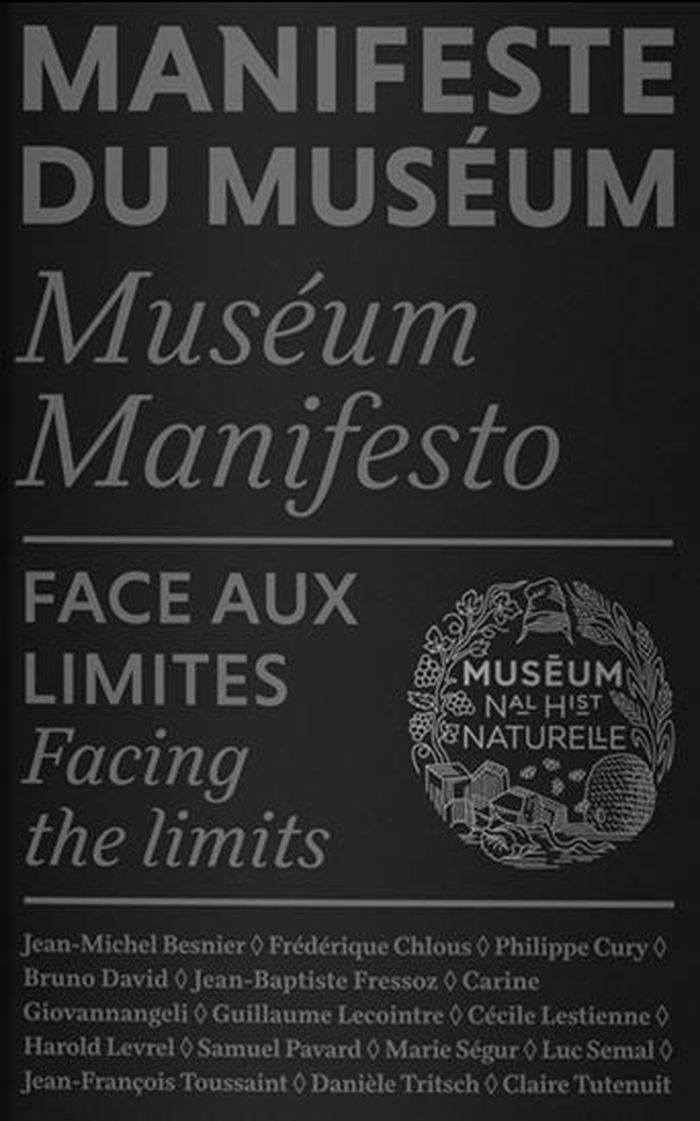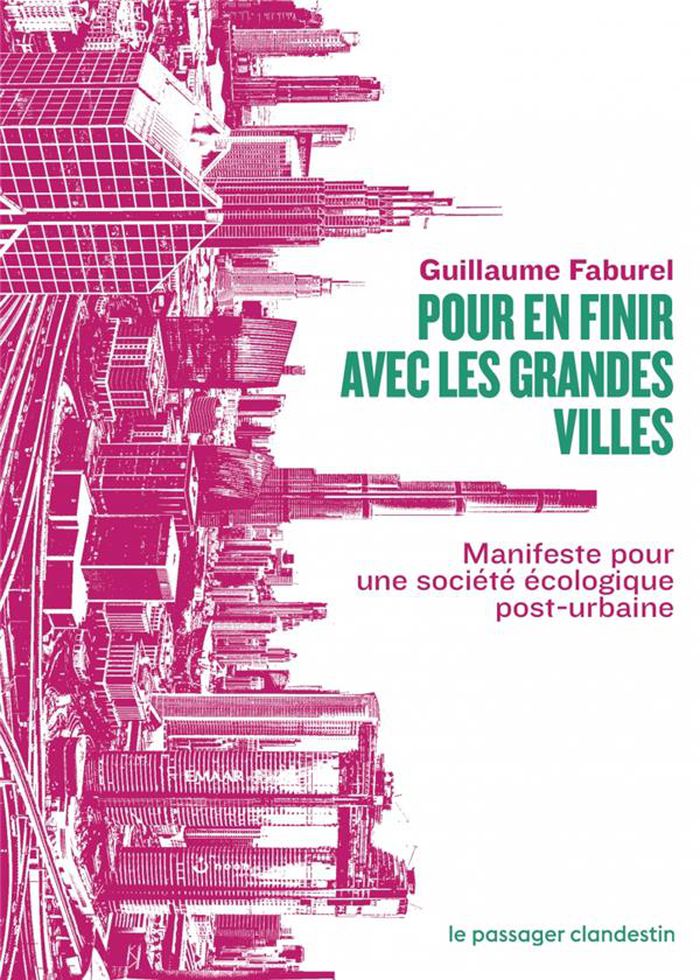$54.95
(disponible sur commande)
Résumé:
'Projective Ecologies' takes stock of the diversity of contemporary ecological research and theory—embracing Felix Guattari’s broader definition of ecology as at once environmental, social, and existential—and speculates on potential paths forward for design practices. Where are ecological thinking and theory now? What do current trajectories of research suggest for(...)
mai 2020
Projective ecologies: ecology, research and design in the climate age. 2nd edition
Actions:
Prix:
$54.95
(disponible sur commande)
Résumé:
'Projective Ecologies' takes stock of the diversity of contemporary ecological research and theory—embracing Felix Guattari’s broader definition of ecology as at once environmental, social, and existential—and speculates on potential paths forward for design practices. Where are ecological thinking and theory now? What do current trajectories of research suggest for future practice? How can advances in ecological research and modeling, in social theory, and in digital visualization inform, with greater rigor, more robust design thinking and practice?
$50.00
(disponible sur commande)
Résumé:
''Transect urbanism: readings in human ecology'' is the definitive reference on the Rural-to-Urban Transect, a compilation of the most important essays, diagrams, and images on the subject. It provides historical, practical, and theoretical insights into one of the most effective urban planning methodologies developed in the 20th Century. The Transect is a unifying(...)
décembre 2020
Transect urbanism: readings in human ecology
Actions:
Prix:
$50.00
(disponible sur commande)
Résumé:
''Transect urbanism: readings in human ecology'' is the definitive reference on the Rural-to-Urban Transect, a compilation of the most important essays, diagrams, and images on the subject. It provides historical, practical, and theoretical insights into one of the most effective urban planning methodologies developed in the 20th Century. The Transect is a unifying theory, serving as a framework for the various fields of urban design. The editors selected the most important previously published essays and commissioned preeminent academics and professionals to write on the use of the Transect in their areas of expertise, including retail, zoning, thoroughfare design, environmental sustainability, and philosophy. As diagrams and drawings are essential to the understanding and use of the Transect, this book also contains the most complete collection of Transect images ever published. ''Transect urbanism'' will serve as a primary reference source for academics, students, and practitioners interested in creating great places.
$37.95
(disponible sur commande)
Résumé:
In ''Beyond the World's End,'' T. J. Demos explores cultural practices that provide radical propositions for living in a world beset by environmental and political crises. Rethinking relationships between aesthetics and an expanded political ecology that foregrounds just futurity, Demos examines how contemporary artists are diversely addressing urgent themes, including(...)
Beyond the world's end: arts of living at the crossing
Actions:
Prix:
$37.95
(disponible sur commande)
Résumé:
In ''Beyond the World's End,'' T. J. Demos explores cultural practices that provide radical propositions for living in a world beset by environmental and political crises. Rethinking relationships between aesthetics and an expanded political ecology that foregrounds just futurity, Demos examines how contemporary artists are diversely addressing urgent themes, including John Akomfrah's cinematic entanglements of racial capitalism with current environmental threats, the visual politics of climate refugees in work by Forensic Architecture and Teddy Cruz and Fonna Forman, and moving images of Afrofuturist climate justice in projects by Arthur Jafa and Martine Syms. Demos considers video and mixed-media art that responds to resource extraction in works by Angela Melitopoulos, Allora & Calzadilla, and Ursula Biemann, as well as the multispecies ecologies of Terike Haapoja and Public Studio. Throughout Demos contends that contemporary intersections of aesthetics and politics, as exemplified in the Standing Rock #NoDAPL campaign and the Zad's autonomous zone in France, are creating the imaginaries that will be crucial to building a socially just and flourishing future.
$36.95
(disponible sur commande)
Résumé:
A sense of urgency pervades global environmentalism, and the degrowth movement is bursting into the mainstream. As climate catastrophe looms closer, people are eager to learn what degrowth is about, and whether we can save the planet by changing how we live. This book is an introduction to the movement. As politicians and corporations obsess over growth objectives, the(...)
août 2020
Exploring degrowth: a critical guide
Actions:
Prix:
$36.95
(disponible sur commande)
Résumé:
A sense of urgency pervades global environmentalism, and the degrowth movement is bursting into the mainstream. As climate catastrophe looms closer, people are eager to learn what degrowth is about, and whether we can save the planet by changing how we live. This book is an introduction to the movement. As politicians and corporations obsess over growth objectives, the degrowth movement demands that we must slow down the economy by transforming our economies, our politics and our cultures to live within the Earth's limits. This book navigates the practice and strategies of the movement, looking at its strengths and weaknesses. Covering horizontal democracy, local economies and the reduction of work, it shows us why degrowth is a compelling and realistic project.
$36.95
(disponible sur commande)
Résumé:
In ''Designs for the Pluriverse'' Arturo Escobar presents a new vision of design theory and practice aimed at channeling design's world-making capacity toward ways of being and doing that are deeply attuned to justice and the Earth. Noting that most design—from consumer goods and digital technologies to built environments—currently serves capitalist ends, Escobar argues(...)
Designs for the pluriverse: Radical interdependence, autonomy, and the making of world
Actions:
Prix:
$36.95
(disponible sur commande)
Résumé:
In ''Designs for the Pluriverse'' Arturo Escobar presents a new vision of design theory and practice aimed at channeling design's world-making capacity toward ways of being and doing that are deeply attuned to justice and the Earth. Noting that most design—from consumer goods and digital technologies to built environments—currently serves capitalist ends, Escobar argues for the development of an 'autonomous design' that eschews commercial and modernizing aims in favor of more collaborative and placed-based approaches. Such design attends to questions of environment, experience, and politics while focusing on the production of human experience based on the radical interdependence of all beings. Mapping autonomous design’s principles to the history of decolonial efforts of indigenous and Afro-descended people in Latin America, Escobar shows how refiguring current design practices could lead to the creation of more just and sustainable social orders.
$53.50
(disponible sur commande)
Résumé:
Global material crises are imminent. In the very near future, recycling will no longer be a choice made by those concerned about the environment, but a necessity for all. This means a paradigm shift in domestic behavior, manufacturing, construction, and design is inevitable. 'The architecture of waste' provides a hopeful outlook through examining current recycling(...)
novembre 2020
The architecture of waste: design for a circular economy
Actions:
Prix:
$53.50
(disponible sur commande)
Résumé:
Global material crises are imminent. In the very near future, recycling will no longer be a choice made by those concerned about the environment, but a necessity for all. This means a paradigm shift in domestic behavior, manufacturing, construction, and design is inevitable. 'The architecture of waste' provides a hopeful outlook through examining current recycling practices, rethinking initial manufacturing techniques, and proposing design solutions for second lives of material-objects.
$83.95
(disponible sur commande)
Résumé:
This important book tells the multifaceted story of humankind’s relationship with flooding, a story that is permeated with a history of both worship and fear. Modern water engineering has turned plains and valleys into fully inhabitable environments. At the same time, those environments have become highly vulnerable to climate change. In efforts to prevent future floods,(...)
Floodscapes: contemporary landscape strategies in times of climate change
Actions:
Prix:
$83.95
(disponible sur commande)
Résumé:
This important book tells the multifaceted story of humankind’s relationship with flooding, a story that is permeated with a history of both worship and fear. Modern water engineering has turned plains and valleys into fully inhabitable environments. At the same time, those environments have become highly vulnerable to climate change. In efforts to prevent future floods, countries are rediscovering adaptation strategies: making room for flooding, redistributing risks and reconsidering the use and legal status of floodplains. Through historical investigations and six contemporary projects implemented in four European countries, "Floodscapes" illustrates how flood-mitigation measures can be embedded in local space and culture. Merged with landscape development, agriculture, recreation, nature, and even urban growth, river management becomes a design issue, giving landscape architects and urban designers a prominent role in future transitions. This book provides an in-depth look into the most common natural disaster in the US, and the innovative solutions that have arisen.
$13.95
(disponible en magasin)
Résumé:
À l’heure où la « collapsologie » tente de s’inviter dans le monde universitaire, d’autres modes de pensée perpétuent l’absence de prise en compte des limites : limites physiques et historiques du corps humain, limites des ressources de la planète. Ni promotrice du transhumanisme, ni annonciatrice d’une apocalypse écologique, l’histoire naturelle nous invite à(...)
Manifeste du Muséum : Face au limites
Actions:
Prix:
$13.95
(disponible en magasin)
Résumé:
À l’heure où la « collapsologie » tente de s’inviter dans le monde universitaire, d’autres modes de pensée perpétuent l’absence de prise en compte des limites : limites physiques et historiques du corps humain, limites des ressources de la planète. Ni promotrice du transhumanisme, ni annonciatrice d’une apocalypse écologique, l’histoire naturelle nous invite à s’éloigner d’un extrême optimisme autant que d’un extrême pessimisme. Au premier, elle rappelle l’historicité des êtres vivants et les limites qu’elle impose; aux seconds elle invite à se pencher sur les échelles de temps et d’espace par lesquels elle comprend le vivant. Crises et effondrement pour qui ou pour quoi? A quelle échéance? Corps augmenté, pour qui? Limites, échelles de temps et d’espace, telles sont les notions permettant à l’histoire naturelle d’envisager notre avenir.
$37.95
(disponible sur commande)
Résumé:
Oppression des femmes et destruction de la nature seraient deux facettes indissociables d'un modèle de civilisation qu'il faudrait dépasser ? : telle est la perspective centrale de l'écoféminisme. Mais derrière ce terme se déploie une grande variété de pensées et de pratiques militantes. Ce livre restitue la richesse et la diversité des théories développées par cette(...)
juin 2020
Être écofeministe : théories et pratiques
Actions:
Prix:
$37.95
(disponible sur commande)
Résumé:
Oppression des femmes et destruction de la nature seraient deux facettes indissociables d'un modèle de civilisation qu'il faudrait dépasser ? : telle est la perspective centrale de l'écoféminisme. Mais derrière ce terme se déploie une grande variété de pensées et de pratiques militantes. Ce livre restitue la richesse et la diversité des théories développées par cette mouvance née il y a plus de 40 ans : critique radicale du capitalisme et de la technoscience, redécouverte des sagesses et savoir-faire traditionnels, réappropriation par les femmes de leur corps, apprentissage d'un rapport intime au cosmos...Dans ce road trip philosophique alternant reportage et analyse, l'auteure nous emmène sur les pas des écoféministes, depuis les Cévennes où certaines tentent l'aventure de la vie en autonomie, jusqu'au nord de l'Inde, chez la star du mouvement Vandana Shiva. Elle révèle aussi les ambiguïtés de ce courant, où se croisent Occidentaux en quête d'alternatives sociales et de transformations personnelles, ONG poursuivant leurs propres stratégies commerciales et politiques, et luttes concrètes de femmes et de communautés indigènes dans les pays du Sud.
$24.95
(disponible sur commande)
Résumé:
Croissant au rythme du capitalisme, les grandes villes concentrent tous les pouvoirs. L’urbain bétonne, cloisonne et éloigne. À l’heure de la distanciation sociale, le constat s’accentue : les grandes villes ne permettent plus le vivre ensemble. Dans ce manifeste, le géographe Guillaume Faburel dénonce les conséquences sociales, sanitaires et écologiques de cette(...)
janvier 2021
Pour en finir avec les grandes villes : manifeste pour une société écologique post-urbaine
Actions:
Prix:
$24.95
(disponible sur commande)
Résumé:
Croissant au rythme du capitalisme, les grandes villes concentrent tous les pouvoirs. L’urbain bétonne, cloisonne et éloigne. À l’heure de la distanciation sociale, le constat s’accentue : les grandes villes ne permettent plus le vivre ensemble. Dans ce manifeste, le géographe Guillaume Faburel dénonce les conséquences sociales, sanitaires et écologiques de cette urbanisation galopante. Il dresse un plaidoyer en faveur de ce qu’on appelle désormais les « zones périphériques ». En finir avec les grandes villes, ce serait rejoindre ces marges pour faire émerger d’autres modèles de société. Illustré par de nombreux témoignages et exemples concrets d'initiatives liées à la transition écologique, ce livre donne des pistes pour construire dès aujourd’hui une société écologique post-urbaine.

